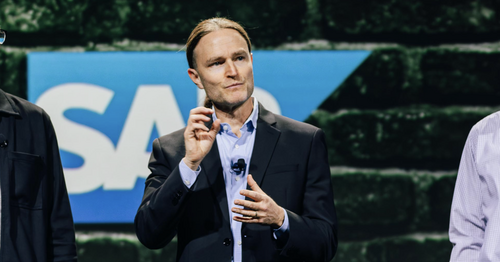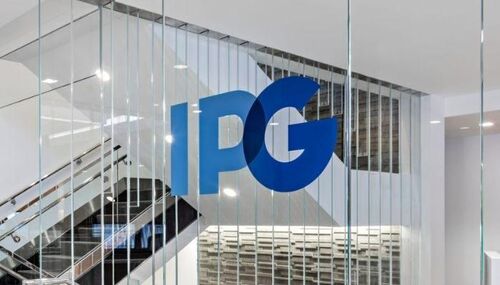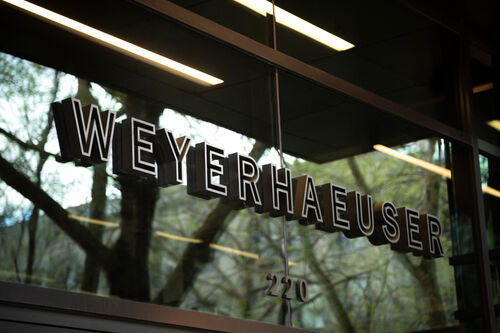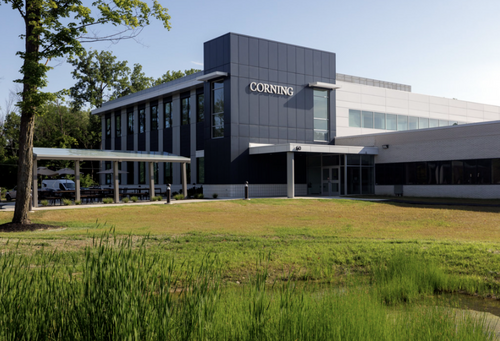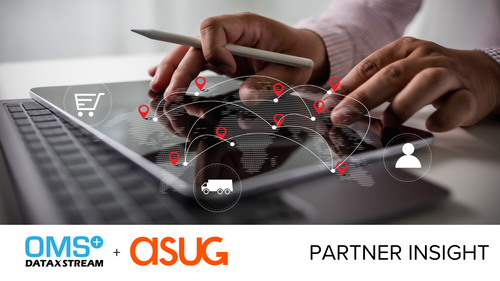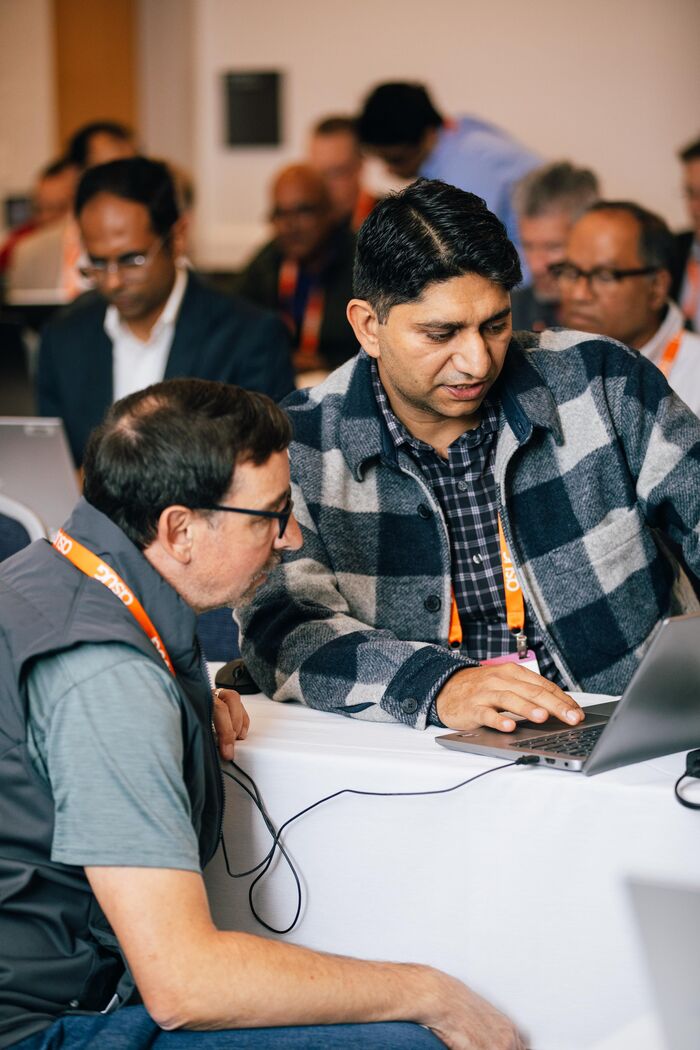Log in to save this article and keep your favorite resources in one place.

SAP leadership announced second-quarter financial results for 2023, with CEO Christian Klein predicting “significant opportunities ahead, in particular through the transformative power of AI,” while stating July 20 that the company had “another strong quarter.”
Assessing the second-quarter performance, SAP leadership reported €7.55 billion in total revenue (up 5%) and €3.3 billion in Cloud revenue (up 19%), shy of median estimates of €7.6 billion and €3.4 billion, respectively. Second-quarter revenue growth was in line with market estimates, but overall the financials fell short of analysts' expectations.
SAP revised its revenue forecast for key cloud sales due to lower-than-expected transactional revenues, with Klein citing fewer public sector customers in Q2 due to the current geopolitical landscape, though he said “demand remains strong” for the second half of 2023.
Also featured in results for the quarter ended June 30: cloud and software revenue was at €6.505 billion (up 5%); current Cloud backlog was at €11.54 billion (up 21%), driven by strong adoption of RISE with SAP; and recent SAP S/4HANA Cloud backlog was at €3.7 billion (up 65%).
Meanwhile, SAP S/4HANA Cloud revenue was at €823 million (up 74%). Both International Financial Reporting Standards (IFRS) and non-IFRS Cloud gross profits were up 20%, supported by completion of SAP’s Next-Generation Cloud Delivery Program. IFRS operating profit was up 28%, with non-IFRS operating profit up 23%.
The company’s combined SaaS and PaaS portfolio grew by 20%, with the SaaS cloud revenue up 19% and PaaS cloud revenue up 47%. This cloud momentum was attributed primarily to increased cloud revenue, supported by consistent contributions from SAP S/4HANA Cloud and SAP Business Technology Platform (BTP).
For the full year, SAP lowered its cloud revenue outlook to €14 billion-14.2 billion (from €14 billion-14.4 billion), and slightly shifted its forecast for its non-IFRS operating profit to €8.65 billion-8.95 billion (from €8.6 billion-8.9 billion). Following Thursday’s release of the financial results, which missed Wall Street estimates, SAP stock closed the day down 6.34%.
'On the Right Trajectory'
SAP announced in March that it would divest its stake in Qualtrics amid a renewed focus on its Cloud business, currently the company’s main driver of revenue growth. All numbers provided on the call were based on continuing operations, excluding contributions from Qualtrics.
Early in the second quarter, SAP completed the migration of its cloud customer base to its “state-of-the-art, harmonized cloud infrastructure,” according to the earnings report. More than 20,000 customers and half a million tenants (entities used to separate data of different customers of a platform owner from each other) migrated through the cloud delivery program, initiated at the beginning of 2021.
“We are very pleased with our first half results,” Dominik Asam, CFO, said. “The revenue growth and increased profitability, combined with sustained growth of our cloud backlog, demonstrate the strength of our business model. Q2 performance puts us on the right trajectory and allows us to raise our cloud and software revenue, as well as the operating profit outlook for the year.”
Elsewhere, Asam noted that SAP achieved net carbon emissions of 0 kilotons, and affirmed that SAP is focused on reaching net zero emissions across its value chain by 2030.
“To get there, we're establishing a multiphase supply chain engagement program with our suppliers to significantly reduce our upstream greenhouse gas emissions,” he said. “As a first step, we’re working with our top 100 suppliers to ensure they report emissions at product level and follow a net-zero plan, leveraging our own technology to do so.”
SAP’s AI Roadmap for Premium RISE and GROW
Building on SAP’s July 18 announcement of strategic direct investments in three generative AI companies (Aleph Alpha, Anthropic, and Cohere), Klein discussed SAP’s commitment to deliver “SAP Business AI that’s relevant, reliable, and responsible” and states that he sees “significant possibilities for market expansion through these technologies and new premium offerings.”
On the earnings call, Klein called RISE with SAP the most popular choice for SAP customers moving to the cloud, and mentioned GROW with SAP for midmarket customers. Klein announced plans to introduce premium RISE and GROW offerings “with an uplift of 30%” in the fall, as part of its approach to SAP Business AI. Klein indicated that this 30% premium will accompany all solutions with embedded generative AI capabilities. Existing or future RISE will have the option of selecting a standard RISE offering or a premium offering with embedded generative AI capabilities.
Klein stated that SAP does not plan to offer generative AI, sustainability, and other differentiating capabilities in on-premises editions of its line-of-business products, limiting these capabilities to cloud solutions. In a significant shift from previous SAP announcements, Klein's comments revealed that SAP's new innovations will only be available in SAP S/4HANA Cloud, public edition or SAP S/4HANA Cloud, private edition through GROW with SAP or RISE with SAP.
“Part of digital transformation is to be able to drive value and early return on that investment, and that’s where AI becomes an accelerator,” Scott Russell, Head of Customer Success at SAP, said.
“If you’re a new customer, embedding AI into RISE or GROW with SAP, to accelerate value, is a reason to move forward quickly,” he added. “And for our large number of customers that have already moved across, they have the ability to not only have their existing cloud transformation but then have a premium uplift. Ease of innovation adoption is one of the beauties of this program.”
SAP anticipates that generative AI will transform its business and pledged to invest more than $1 billion in AI-powered technology startups through Sapphire Ventures, its enterprise capital firm. In May, SAP and IBM announced IBM Watson technology will be embedded into a range of SAP solutions to provide new AI-driven insights and automation.
“It’s clear that generative AI will fundamentally change the way businesses run,” Klein said. “In the business world, no one is better positioned than SAP to empower businesses to take advantage of this transformational moment.”
Expert Analyst Offers Perspective
In the SAP analyst community, Joshua Greenbaum, Principal at Enterprise Applications Consulting, pointed to the "significant 74% year-to-year growth for SAP S/4HANA Cloud revenue" as one more positive outcome of the second-quarter financials, particularly as S/4 growth in Q2 2022 was 84% higher than in the previous year. "That's a lot of continuous growth, which also indicates that demand is growing consistently as well," he said.
For Greenbaum, the Q2 financial results provoked questions about the SAP cloud portfolio outside of SAP S/4HANA, AI, and the current emphasis on RISE and GROW. “Even though S/4HANA sales were up significantly, Concur and Fieldglass—two other very important SaaS products—suffered from the proverbial ‘headwinds’ that Wall Street fears so much,” Greenbaum said.
SAP Business Network was also cited in the “headwinds” category, though it remains a nascent, relatively unknown offering in the SAP portfolio. Greenbaum noted that other SaaS products, especially SAP SuccessFactors, were not discussed during the earnings call. “Considering that S/4HANA sales made up 25% of the total cloud revenue and grew at 74% year to year, the fact that the rest of the cloud portfolio only grew at 19% year to year indicates that growth in the rest of the portfolio was lagging,” he said.
As Klein stated on the earnings call that SAP innovations in ERP, sustainability, AI, and other domains will not be available in any on-premises systems, instead focusing on current cloud customers and those migrating to the cloud through RISE and GROW, Greenbaum questioned whether this latest push for customers to move to SAP S/4HANA Cloud, public edition would create confusion as to the status of on-premises SAP S/4HANA deployments or hyperscaler-hosted implementations outside of RISE. Greenbaum connected this pivot to “SAP’s difficulties keeping Wall Street happy by pushing RISE and GROW.”
Finally, Greenbaum responded to Klein’s comments around AI, specifically noting his discussion of premium RISE offerings and expressing skepticism on this count.
“The big news on the AI front,” he said, “is that SAP plans on charging a 30% premium for its generative AI capabilities, something that will be hard for customers to swallow unless SAP does a better job proving there’s measurable value behind the hype of generative AI. The jury is still out on that issue in the enterprise.”
You Might Be Interested In

Log in to save this article and keep your favorite resources in one place.

Log in to save this article and keep your favorite resources in one place.

Log in to save this article and keep your favorite resources in one place.

Log in to save this article and keep your favorite resources in one place.
